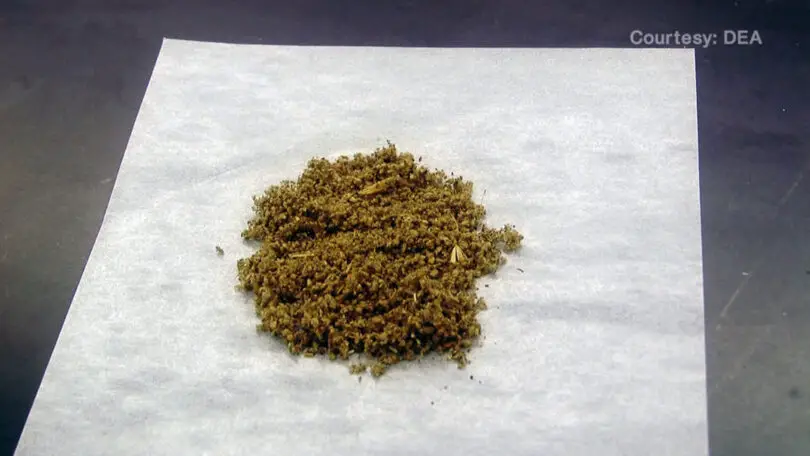Spicy smells can be described as pungent and aromatic, with a combination of strong, intense flavors. When you encounter a spicy smell, you are immediately met with a powerful aroma that is both sharp and stimulating to the senses.
It can evoke images of sizzling hot peppers, rich spices, and exotic cuisines. Spicy smells often have a distinctive heat and depth that can awaken your taste buds and make your mouth water in anticipation. The scent can range from earthy and smoky to vibrant and zesty, offering a unique sensory experience like no other.
Whether encountered in a bustling kitchen, a fragrant market, or a sizzling dish, the scent of spice is sure to ignite your senses and leave you craving for a delightful culinary adventure.
The Chemistry Of Spicy Smells
The chemistry of spicy smells is fascinating. Various elements contribute to the creation of a spicy aroma. One such element is capsaicin, which is found in peppers like chili and jalapeno. Capsaicin stimulates the nerve endings in the mouth and creates a burning sensation. Another important compound is allicin, present in garlic and onions, which gives a pungent and spicy smell. These elements interact with our taste buds, triggering a reaction that we perceive as spiciness. The reaction between these compounds and receptors on our taste buds sends signals to our brain, creating the distinct aroma associated with spiciness. The combination of these elements and their interaction with our senses makes spicy food a tantalizing experience that many enjoy.
Natural Sources Of Spicy Fragrances
Spicy fragrances have a distinct and enticing aroma that can be found in various natural sources. Plants and herbs are known to emit spicy scents that add depth and warmth to perfumes and fragrances. Some common examples include cinnamon, cloves, cardamom, and black pepper. These spices are often extracted and used as ingredients in perfumes to create a rich and intense aroma. The warm and fiery scent of spices can evoke a sense of passion and allure, making them popular choices in the fragrance industry. Incorporating natural spice extracts in perfumes not only adds a unique and captivating fragrance, but it also provides a connection to nature and the vast array of scents that it offers.
Popular Spices Known For Their Aromatic Qualities
Popular Spices Known for Their Aromatic Qualities
Cloves: Aromatic profile and uses in perfumery
Cloves, known for their distinct aroma, are widely used in perfumery due to their aromatic profile. Their warm and sweet-smelling fragrance adds depth and complexity to various scents. In perfumery, cloves are often used as a middle note, blending well with other spices and floral scents. Their aromatic qualities lend a comforting and exotic touch to perfumes, colognes, and even candles. Incorporating cloves into perfumery brings a rich and sophisticated element to fragrances, creating a well-balanced olfactory experience.
Cinnamon: The sweet and spicy fragrance
Cinnamon, with its unique sweet and spicy fragrance, is a popular spice known for its aromatic qualities. The warm and comforting scent of cinnamon adds a delightful touch to various products such as perfumes, room sprays, and candles. Its aromatic profile creates a cozy and inviting ambiance, making it a favorite choice for many. Whether used as a standalone note or blended with other scents, cinnamon adds depth and richness to fragrances, enhancing the overall olfactory experience.
Pepper: Its distinctive scent and variations in aroma
Pepper, with its distinctive scent, is another spice renowned for its aromatic qualities. The sharp and slightly pungent aroma of pepper can vary depending on the specific variety, such as black, white, or pink pepper. Its unique fragrance adds a touch of spice and intensity to fragrances, making it a sought-after ingredient in perfumery. The versatile nature of pepper allows it to be used in various perfume compositions, creating scents that range from bold and invigorating to subtle and sophisticated.
The Role Of Capsaicin In Spiciness
The compound responsible for the spiciness we perceive in foods is capsaicin. Capsaicin is a chemical compound found in chili peppers and gives them their characteristic heat. This compound not only activates the heat receptors in our taste buds but also has a distinct aroma that adds to the overall perception of spiciness. The smell of capsaicin can be described as pungent, peppery, and even slightly sweet. When we consume spicy foods, capsaicin interacts with our taste receptors, triggering a release of endorphins that create a pleasurable sensory experience. It’s interesting to note that different varieties of chili peppers contain varying levels of capsaicin, resulting in different levels of spiciness. So the next time you enjoy a spicy dish, remember that capsaicin is the key player behind its aromatic and fiery nature.
Unveiling The Complexities Of Spicy Notes
Spicy fragrances are a fascinating blend of various compounds working together to create a distinct aroma. These unique combinations produce the characteristic spicy scent that we love. The interplay of molecules like cinnamaldehyde, eugenol, capsaicin, and piperine contribute to the pungent, warm, and invigorating nature of spicy notes.
When these compounds interact with our olfactory receptors, they trigger a sensory response, stimulating a perception of heat and intensity. The complex nature of these spicy fragrances allows for a wide range of interpretations and variations in different perfumes and colognes.
Whether it’s the warmth of cinnamon, the zing of pepper, or the heat of chili, each spice brings its own unique signature to the fragrance composition. These spicy notes can add depth, complexity, and excitement to perfumes, creating an alluring and memorable olfactory experience.

Credit: www.harlemcandlecompany.com
The Psychology Behind The Allure Of Spicy Fragrances
The allure of spicy fragrances goes beyond the simple act of smelling. It taps into the psychological effects that these scents have on our emotions and memories. When we encounter a spicy scent, such as cinnamon or chili, it can evoke a range of emotions, from excitement and passion to nostalgia and comfort.
Research has shown that the chemical compounds responsible for the spicy smell can stimulate the brain and release endorphins, which are natural feel-good chemicals. This can explain why spicy fragrances are often associated with positive feelings and a sense of well-being.
Furthermore, spicy scents can also trigger memories and associations. For example, the smell of a spicy curry might remind someone of a cherished family recipe or a special occasion. These nostalgic connections add to the allure and appeal of spicy fragrances.
Overall, the psychology behind the allure of spicy fragrances lies in their ability to evoke emotions, release endorphins, and trigger memories. It’s no wonder that these scents continue to be popular and captivating for many.
Spices In The World Of Fragrances
Spices play a vital role in the world of fragrances, adding a unique and enticing twist to perfumes and colognes. They bring an element of warmth and richness, making the scents more complex and alluring. Spicy notes can be found in various fragrance categories, such as oriental, woody, and even floral scents. Some popular examples of perfumes and colognes utilizing these spicy notes include [Brand/Perfume Name], which combines the heat of black pepper with the sweetness of vanilla; [Brand/Perfume Name], which embraces the exotic spiciness of cardamom and cinnamon; and [Brand/Perfume Name], which features the zesty warmth of ginger and nutmeg. These fragrances captivate the senses, evoking a sense of mystery and depth. So, next time you’re looking for a new scent, consider indulging in the allure of spicy fragrances.
Creating Spicy Fragrances: Tips And Techniques
The process of creating spicy fragrances involves blending different spices to achieve a desired fragrance. By carefully combining various spices, you can create a balanced and captivating scent that appeals to the senses.
Blending spices is an art that requires careful consideration of each spice’s aroma and intensity. Start by selecting a base spice that will serve as the foundation of your fragrance. Common base spices for spicy fragrances include cinnamon, nutmeg, and cloves.
Add in other spices gradually, taking note of how each one contributes to the overall fragrance. You can experiment with spices like cardamom, ginger, and black pepper to add depth and complexity to your scent.
Remember to take into account the strength of each spice and how they interact with one another. A delicate balance of the spices will ensure a harmonious and well-rounded fragrance.
Beyond The Nose: The Wider Applications Of Spicy Smells
Spicy smells can ignite our senses and elicit various reactions, but their applications extend far beyond just our noses. Aromatherapy is an area where these fragrances are often utilized to promote relaxation, relieve stress, and improve mood. The powerful scents of spices such as cinnamon, clove, and ginger can help create a calming and soothing atmosphere, making them ideal for use in diffusers, candles, and massage oils.
In addition to their aromatic benefits, spicy scents are also popular in household and culinary products. These fragrances can add a warm and inviting touch to products like air fresheners, room sprays, and scented candles. Spices like paprika, cayenne pepper, and nutmeg are commonly used in cooking and baking to enhance the flavor profiles of dishes, ranging from savory to sweet.
The versatility of spicy smells makes them highly sought after in various industries, expanding their reach beyond just the realm of our noses.
Exploring Spicy Fragrances: A Sensory Experience
Exploring the world of spicy fragrances is a sensory experience that can transport you to another dimension. From the warmth of cinnamon to the tang of black pepper, each spice has its unique aroma that can awaken your senses.
When smelling different spices, take a moment to appreciate their complexities. Notice the peppery undertones of cardamom or the earthy warmth of cloves. Each note adds depth to the fragrance, creating a harmonious blend.
To identify different spicy smells, pay attention to their intensity and nuances. Note whether it is subtle and sweet like nutmeg or pungent and bold like chili pepper. With practice, you can develop a discerning nose, able to distinguish between various spices.
Enhance your olfactory journey through spice exploration by incorporating spices into your daily life. Experiment with spicy essential oils or create your own bespoke fragrances. You can also incorporate these fragrances into your home decor through scented candles or potpourri.
Immerse yourself in the world of spicy scents, and let your senses be delighted by their incredible range.
Frequently Asked Questions
What Smells Are Spicy?
Spicy smells include cinnamon, cloves, chili peppers, ginger, and black pepper.
Is Spicy A Scent?
No, spicy is not a scent as it refers to a taste sensation rather than an aroma.
Do Spices Have A Smell?
Yes, spices have a distinct smell due to the aromatic compounds they contain.
How Do Spices Smell?
Spices have distinct smells that vary from sweet and earthy to spicy and aromatic.
Conclusion
From the tantalizing aroma of chilies to the warm spiciness of cinnamon, the concept of a spicy smell is certainly intriguing. Not only does it evoke memories of delicious meals and exotic locations, but it also has a unique power to stimulate our senses.
The diverse range of spices and their aromatic qualities make the concept of a spicy smell subjective and open to interpretation. Some may associate it with a fiery heat, while others may conjure images of a subtle warmth. Regardless of individual perspectives, the undeniable allure of a spicy scent lies in its ability to awaken our taste buds and transport us to far-off lands.
Exploring the world of spices is like embarking on a flavor-filled adventure, where each whiff holds promise and excitement. So, next time you encounter a spicy aroma, embrace the complexity and richness it offers, and let it awaken your senses to new experiences and culinary delights.







